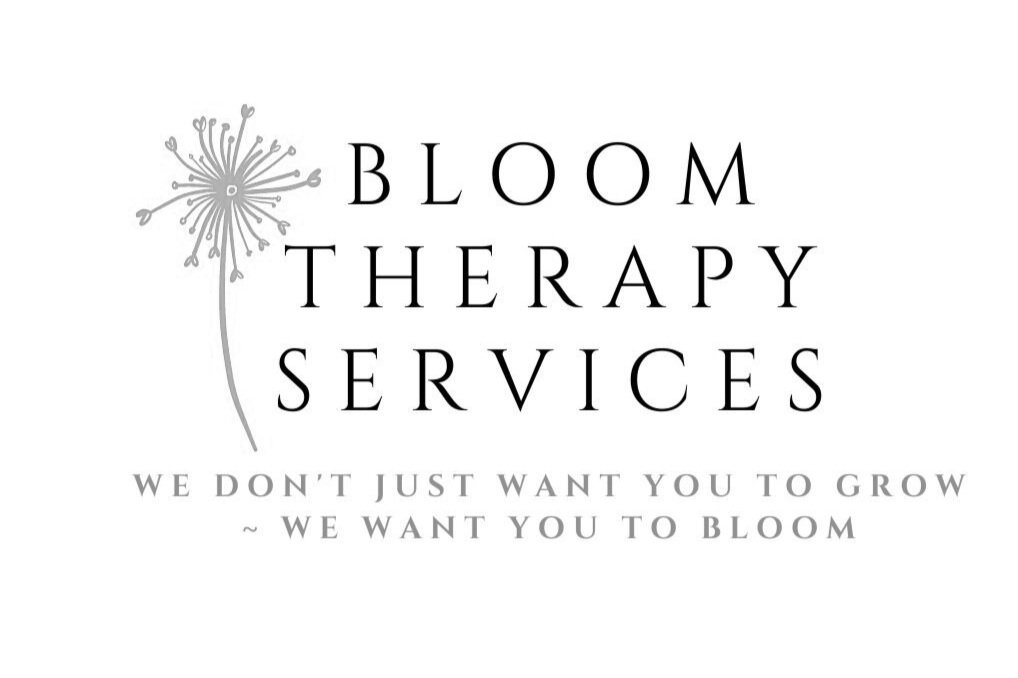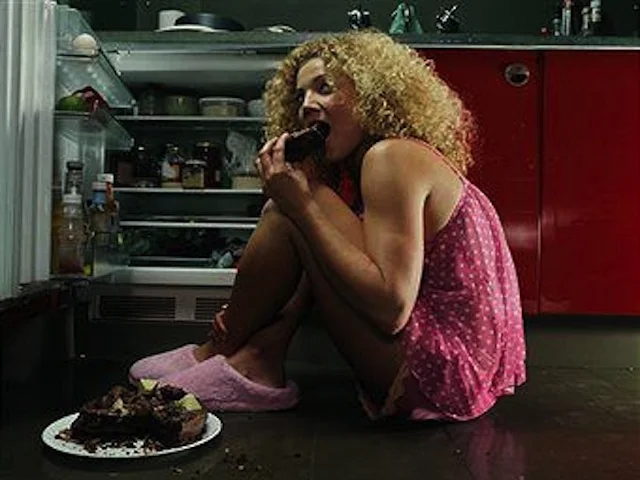A Letter to You...
This is where I get a chance to help you with building a better, healthier relationship with food. Because trust me, I've been there. As someone who grew up an overweight child, I feel like my relationship with food has taken many forms throughout my life. From binge eating, to anorexia, to bulimia I've been through it all.
Hello,
This is where I get a chance to help you with building a better, healthier relationship with food. Because trust me, I've been there. As someone who grew up an overweight child, I feel like my relationship with food has taken many forms throughout my life. From binge eating, to anorexia, to bulimia I've been through it all. After spending years fearing food, I finally found food freedom. I finally learned how to love my body and feed it nourishing foods so it loves me back. Cool, right?!
I want to help you do the same. If you are the person that has thrown away the brownie, only to DIG IT OUT OF THE TRASH and still eat it, then this is the place for you. You are in the right spot if you have spent 2 hours tirelessly working out, only to go through the DAIRY QUEEN DRIVE-THRU after you left the gym. I can help you if you're the person that's put off the BEACH VACATION you deserve (for like your entire life) because you're not "beach body" ready.
And you know how I can help? Because I've been there, too. I've been all of those people and STILL come out on the other side. After spending years in a battle with my body and my diet, I finally decided to channel that energy into my education and training so that I could not only help myself, but help others, too!
I want to end this by saying that I am so glad you stopped in for a visit. Whether you're ready to make changes now, or in the future, just thinking about change is the first step! I would love to help you get to the next one.
Amber Madden
For more information on how you can get started on your recovery journey, please go to www.maddenwellness.ky.com
Amber Madden is a Licensed Counseling Associate specializing in Eating Disorders and Obesity. She is the Clinical Director at Madden Wellness Counseling, PLLC. She utilizes her skills in addiction to assist her clients in with Binge Eating, "food addictive" patterns, and develop a positive approach to overall health and wellness. She has a passion for assisting clients in achieving their health goals and learning to love nutritious foods and exercise. For more information visit www.maddenwellnessky.com .
3 Ways to Love Yourself Without Food
With emotional eating, we tend to try and soothe ourselves with food. When we're sad, we eat chocolate. When we're angry, we eat cookies. When we're lonely, we drink wine. Whatever the reason, unfortunately, all we really end up doing is making ourselves feel worse.
With emotional eating, we tend to try and soothe ourselves with food. When we're sad, we eat chocolate. When we're angry, we eat cookies. When we're lonely, we drink wine. Whatever the reason, unfortunately, all we really end up doing is making ourselves feel worse.
Food comfort is only temporary. If it's food you're turning to in order to resolve an emotion or feeling, then you will find yourself reaching for a second cookie and maybe even a third. These unpleasant emotions are a void that will not be filled with sweet treats. We need to find better ways to cope with our emotions and treat ourselves with kindness and compassion.
On this Valentine's Day, I ask that you love yourself enough. Love yourself enough to not turn to food out of sadness or despair. Love yourself enough to have respect for everything great your body does for you, such as powering you through a difficult workout. Love yourself enough to accept the emotions and realize that food cannot be the answer.
On this Valentine's Day, I want to give you the gift of 3 ways you can love yourself without food.
1. Treat yourself to a massage. There is no reason to feel guilty about how much money it costs or what else you should be buying instead. Think of how much you spend on sweet treats or dining out and instead, invest in your self-care with a massage.
2. Enjoy a day free of chores. We are OVERWHELMED in general with so much to do all of the time. More than ever, women experience feeling overwhelmed daily while trying to succeed at work and manage a household at the same time. Give yourself the day off and spend an entire day doing NOTHING.
3. Rent a movie off the television. Does this seem like a treat to anyone else? Generally, I've always seen this as a waste of money, but really, at around $7 per rental it's more affordable than actually going to the theater. Let alone, there's a reason the theater always has the popcorn popping. It's been reported the popcorn is chemically modified just for the aroma! Save the calories, the crowd and stay in from the cold where you can have a nice home cooked meal and rent a movie for less than $7.
Most importantly, remember on this Valentine's Day to give yourself a little wiggle room. If you do happen to enjoy a treat or two, it will NOT be the end of the world. These special days are meant to be enjoyed and sometimes that means we celebrate with food. If you find that box of chocolates is calling your name, enjoy one or two and then pass the box along to the rest of the family. If you do go out to eat with your spouse or partner, remember to include plenty of fresh vegetables and lean proteins with your meal. Box up half to take home and enjoy for lunch the next day so you can save some room to split a dessert between you and your love.
Happy Valentines Day!
Amber Madden is a Licensed Counseling Associate specializing in Eating Disorders and Obesity. She is the Clinical Director at Madden Wellness Counseling, PLLC. She utilizes her skills in addiction to assist her clients in with Binge Eating, "food addictive" patterns, and develop a positive approach to overall health and wellness. She has a passion for assisting clients in achieving their health goals and learning to love nutritious foods and exercise. For more information visit www.maddenwellnessky.com
Fat Girl - A Book Review
A book review of the memoir Fat Girl: A True Story, by Judith Moore.
Hello everyone! I have a book review for you today.
This report is a summary of the memoir, Fat Girl, by Judith Moore. In this detailed story, Judith creates an insightful picture of her experience as an overweight child. She laments vivid memory of many different times in her life when food was the central focus and solace to many aspects of emptiness in her life. Judith describes a childhood of torment and bullying by her classmates, attachment issues with her parents and more than one episode of when she was exposed to sexual harassment and abuse during her younger years.
Perhaps one of the most prominent themes in the book is Judith’s quest to find love and belonging. Her parents divorced when she was so young that she does not even remember her father. She writes of a mother that is thin and petite and describes her as, “built like a pear, with a pear’s waist and rounded hips.” In the memoir, she recalls a conversation with her mother when Judith had inquired about why her parents had divorced. Her mother snaps at her stating, “He crushed me, buried me alive.” Another significant part of this conversation was that her mother pointed out one reason she divorced her father was because he was fat. This statement points towards perhaps a predisposing factor associated with genetics contributing to Judith’s eating issues, as well as an interpretation Judith might be left or abandoned due to her size and weight.
Judith describes a life of isolation, one where she is preoccupied by her body, weight and size constantly. She is overwhelmed with the tasks of everyday living and often sees her body weight as interference in her ability to live a “normal” life. Simple events, such as trying on clothes, become daunting escapades in which she experiences stress and shame. During one shopping trip she comments, “Sweat pops out on my forehead. Sweat forms under my breasts and blooms beneath my armpits….. I smell meaty. I hate these clothes and I hate this store. (pg. 21)”
Because of her self-shame and hatred, Judith seems to live a lonely life. Therefore, not many people appear to be directly impacted by her eating issues. However, one could argue the people that are impacted are the people that are not in her life. Judith remains preoccupied with her body shape and weight status and distances herself from any real relationships, thus many have never had the opportunity to get to know Judith on an interpersonal level. This distancing and the metaphoric walls she has built, only assist in perpetuating Judith’s shame. Thus, she is pushed further into withdrawal from others and society.
Another factor possibly contributing to Judith’s eating issues occurs when she is in the third grade. Wanting to go to the movies, yet having no friends to accompany her, she lies to her parents that she will be attending a local showing with her friend. While viewing the movie alone, a strange man sits near her and proceeds to groom her by talking to her, asking her questions and touching her hand. During this exchange, the stranger suddenly takes her hand and shoves it down his pants. Scared and afraid she manages to get away from the man, but she never tells anyone of this instance (pg.109).
Another scenario occurs when she is on the playground. After being bullied and tormented for many years by her peers, she is rarely surprised when two boys shove her against a fence, holding her down and calling her names such as, “porky” and “fatty.” During this situation, one of the boys holds her down while the other fondles her in what she describes as her “private” areas.
An article on NEDIC assists in outlining the significance prior abuse and trauma can have in contributing to eating disorders. Many individuals who have experienced abuse often use food, and perhaps weight gain, as a way to distance themselves from people, believing this is a method to imply protection from further trauma. The article states, “The individual who has experienced abuse may have managed to keep the memories at a safe distance while preoccupied with food and weight. (http://nedic.ca/giving-eating-disorder-what-else-might-you-be-giving)”
Throughout the story, Judith discussed she did attend therapy a few times throughout her life, but primarily for other issues such as depression. She specifically stated being “surprised” now that in all the therapy sessions she attended, no therapist had ever brought up her weight or eating issues as being a subject or focus of treatment (pg. 36). Judith gave forewarning at the start of her memoir to the reader informing her story does not have a happy ending. In fact, the story ends with her having been divorced a second time, and with the statement, “I don’t want you to feel sorry for me. I do not feel sorry for myself. I am what I am. (pg. 196)”
Judith’s story is one of both testimony and purpose. She is a voice for those that feel shamed and speaks on behalf of the stigma many overweight and obese people experience every day. Her struggles with weight and self-acceptance are conveyed in such a way that the reader can experience first-hand. Others living and experiencing the same difficulties as Judith will feel the book has given an honest representation of the emotions which accompany having an eating disorder, specifically those surrounding issues tied to body image and self-esteem.
References
Moore, J. (2005). Fat girl: A true story. New York: Hudson Street Press.
Amber Madden is a Licensed Counseling Associate specializing in Eating Disorders and Obesity. She is the Clinical Director at Madden Wellness Counseling, PLLC. She utilizes her skills in addiction to assist her clients in with Binge Eating, "food addictive" patterns, and develop a positive approach to overall health and wellness. She has a passion for assisting clients in achieving their health goals and learning to love nutritious foods and exercise. For more information visit www.maddenwellnessky.com .
What is Binge Eating?
Share
WHAT IS BINGE EATING?
February 4, 2016
Binge Eating Disorder can be a serious condition that impacts many people every year. In fact, Binge Eating Disorder (BED) is the most common eating disorder in the United States. According to BEDA, “An estimated 3.5% of women, 2% of men and 30% – 40% of those seeking weight loss treatments can be clinically diagnosed with BED.” Although the disorder commonly appears in individuals that are obese, it can also occur in those that are of a normal weight range.
Binge Eating Disorder can be a serious condition that impacts many people every year. In fact, Binge Eating Disorder (BED) is the most common eating disorder in the United States. According to BEDA, “An estimated 3.5% of women, 2% of men and 30% – 40% of those seeking weight loss treatments can be clinically diagnosed with BED.” Although the disorder commonly appears in individuals that are obese, it can also occur in those that are of a normal weight range.
Those with BED often experience episodes of eating in which they eat until they are physically uncomfortable, sick or even in pain after a meal. They find it difficult to stop during feeding, even if they do start to feel full. Many may not even notice when they’re beginning to feel full because they have “zoned out” while eating, almost in a trance-like state. People struggling with BED feel powerless, out of control and hopeless in their quest to lose weight or change their eating habits.
People who binge-eat sometimes experience a crippling cycle in which they may binge to the point of feeling uncomfortable, diet or restrict to compensate for the binge to the point of extreme hunger and then find they binge again. This cycle triggers feelings of guilt, shame and hopelessness, which in turn, can lead to another binge episode.
This is one of the very reasons why many diets fail for many of those seeking change. Individuals attempt to diet, restrict calories and compensate for their bingeing. However, there are complicated and negative emotions tied to BED. These emotions can stem from past traumatic experiences, body dissatisfaction, self-hatred, or interpersonal problems, such as struggling with relationships. The emotions keep these individuals stuck in the cycle and they have great difficulty in managing these episodes.
Symptoms of Binge Eating Disorder:
Eating an amount of food that is definitely larger than what most people would eat in a similar period of time under similar circumstances.
A sense of lack of control over eating during the episode (e.g., a feeling that one cannot stop eating or control what or how much one is eating.)
Eating much more rapidly than normal.
Eating until feeling uncomfortably full.
Eating large amounts of food when not feeling physically hungry.
Eating alone because of feeling embarrassed by how much one is eating.
Feeling disgusted with oneself, depressed, or very guilty after eating.
Below you will find resources for searchable databases regarding treatment centers offering binge eating treatment by location.
BEDA – Binge Eating Disorder Association
NEDA – National Eating Disorder Association
Eating Disorder Hope
If you or a loved one is in need of support, please do not hesitate to reach out to a professional. Binge Eating Disorder triggers emotions of guilt and shame, which causes individuals to suffer in silence. BED is a real condition, and there is no need to be ashamed. In addition, I would love to help and support you or a loved one any way I can. You can contact me through my business email amber@maddenwellnessky.com or go to my website for information and resources www.maddenwellnessky.com .
Amber Madden is a Licensed Counseling Associate specializing in Eating Disorders and Obesity. She is the Clinical Director at Madden Wellness Counseling, PLLC. She utilizes her skills in addiction to assist her clients in with Binge Eating, "food addictive" patterns, and develop a positive approach to overall health and wellness. She has a passion for assisting clients in achieving their health goals and learning to love nutritious foods and exercise. For more information visit www.maddenwellnessky.com





























